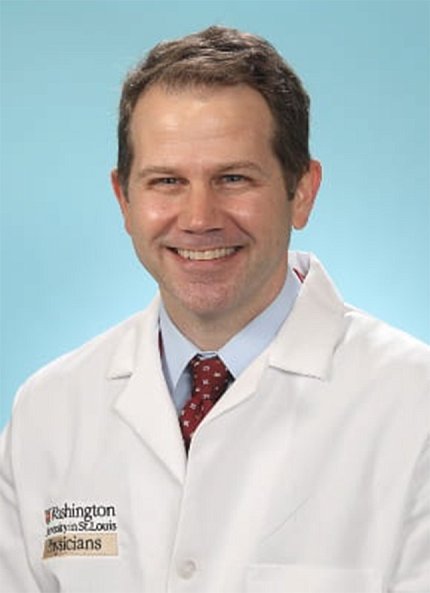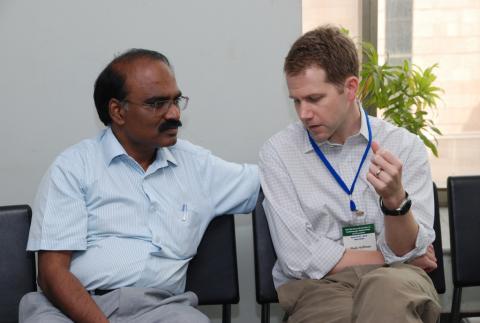Huffman Gets to the Heart of Mentorship

During his time in an NIH Fogarty International Center training program, Dr. Mark Huffman analyzed data from more than 25,000 patients with acute coronary syndrome (heart attacks) at 125 hospitals in Kerala, a south Indian state.
India has a high burden of heart disease; optimizing the quality of heart care is critical for improving patients’ outcomes.
Before he was given access to the data, Huffman needed to build trust in the Keralan cardiology community. With support from two leading Kerala cardiologists, Huffman traveled around the state, visiting hospitals, meeting with fellow cardiologists, and getting to know his new colleagues. They subsequently planned and executed a trial, funded by NIH’s National Heart, Lung, and Blood Institute (NHLBI), that improved the quality of heart attack care in Kerala.
“The Fogarty fellowship was instrumental not only for developing my skills but also for building relationships that could be sustained,” said Huffman. One of Fogarty’s first cardiology fellows in 2009, he credited his U.S. mentors, Drs. Donald Lloyd-Jones and Robert Bonow, and his international mentor, Dr. Dorairaj Prabhakaran who is based at the Center for Chronic Disease Control in Delhi, for helping him formulate high-impact scientific questions and develop skills, networks and experiences.
Huffman is now the William Bowen Endowed Professor of Medicine and co-director of the Global Health Center at Washington University in St. Louis, with a secondary appointment at The George Institute for Global Health at the University of New South Wales in Australia.
One of Huffman’s mentees, Dr. Anubha Agarwal, a former Fogarty fellow and now an assistant professor at Washington University, recently received NIH funding to develop a heart failure polypill in Sri Lanka. Because it addresses a major global treatment gap, her research is as relevant in the U.S. as it is in Southeast Asia.

Photo: courtesy of Mark Huffman and Fogarty International Center
Another of Huffman’s mentees, Dr. Nilay Shah, a professor at Northwestern University, is now leading the MASALA 2G (second generation) study, a follow-up to the parent MASALA (Mediators of Atherosclerosis Among South Asians Living in America) study. MASALA is analyzing the intergenerational transmission of cardiovascular health in South Asians, a population with a higher prevalence of atherosclerotic cardiovascular disease (“hardening of the arteries” caused by plaque buildup in artery walls).
Huffman said, “This study is a great example of why we need to do work internationally, because there are discoveries that can be made and brought back to the United States to help us understand, and also to prevent, treat and control cardiovascular disease, one of the leading causes of death in our country and around the world.”
Currently, Huffman is a co-principal investigator of the Cardiovascular Research Training in Nigeria (CeRTIN) program— together with Dr. Lisa Hirshhorn of Northwestern and Dr. Dike Ojji at the University of Abuja. This program aims to strengthen the base of investigators capable of pursuing patient-centered research on cardiovascular disease prevention and control in Nigeria, the most populous country in Africa, which also has a high burden of cardiovascular disease.
Huffman, Ojji, and their teams co-lead several studies in Nigeria that integrate hypertension into routine primary care, evaluate dietary sodium policy implementation and effectiveness, and adapt a U.S.-based home visiting program to improve maternal cardiovascular health.
For Huffman, the most rewarding aspect of his work—aside from growing researchers and creating opportunities through mentorship while working to reduce the burden of heart disease—is seeing long-term benefits for Americans come to fruition.
“When I went to my Fogarty orientation more than 15 years ago, they made sure we all knew we work for the American taxpayer, so when people ask what I do, I say, ‘I work for you.’”
